In the rapidly changing world of digital technology, the introduction of increasingly strict data privacy laws both in the U.S. and worldwide poses a significant challenge. Businesses must not only become proficient in understanding these laws but also adept at operational integration. The complexity of these regulations requires more than just surface-level comprehension and compliance.
Navigating the Compliance Maze
Compliance with regulations such as the General Data Protection Regulation (GDPR) and the California Consumer Privacy Act (CCPA) is a complex affair. In a study of more than 800 IT and business professionals that are responsible for data privacy, AIIM found that more than 50% of businesses know little or nothing about GDPR.
More recently, TrustArc found that only 20% of businesses believe they are now GDPR compliant. To top that, there are now a total of thirteen states in the USA that have passed comprehensive data privacy laws: California, Virginia, Colorado, Connecticut, Utah, Iowa, Indiana, Tennessee, Texas, Florida, Montana, Oregon, and Delaware.
The Steep Price of Non-Compliance
Regulatory authorities worldwide have not hesitated to impose heavy penalties for non-compliance. In 2022 alone €2.9B worth of fines were issued to companies like H&M, Meta, Marriott, Google and more. That number is projected to reach €3.8B in 2023. The majority of these infringements are due to data processing violations, with the most common issue being the inability to delete consumer data upon request.
Beyond financial penalties, non-compliance can severely tarnish a brand’s reputation, leading to a loss of customer trust—a potential cost far more devastating than financial sanctions. Research from the International Association of Privacy Professionals (IAPP) suggests that Fortune’s Global 500 companies have spent around $7.8 billion to ensure GDPR compliance. For small and medium-sized businesses, the cost of compliance can be proportionally higher, given their limited resources.
Technology: The Compliance Beacon
Artificial Intelligence (AI) is reshaping the way businesses approach data privacy compliance. Traditionally, businesses have relied on manual approaches to ensure compliance, which can be time-consuming, error-prone, and inefficient due to the complexity and dynamism of privacy laws. These traditional methods struggle to keep pace with the ever-evolving data privacy landscape, leading to potential risks and regulatory breaches.
However, the advent of AI has catalyzed a paradigm shift in compliance management. With its capacity for large-scale data processing, pattern recognition, and predictive modeling, AI can automate and streamline various compliance-related tasks, such as data classification, risk assessment, and policy enforcement. This automation not only improves efficiency but also reduces the risk of human errors that could lead to non-compliance.
Rise of the AI Chief Compliance Officer
The concept of an AI-powered Chief Compliance Officer is gaining traction. This AI tool, capable of deciphering complex regulations, offers real-time insights and guidance, significantly mitigating non-compliance risks. A recent Accenture report revealed that 80% of compliance teams anticipate increasing their use of AI technologies within the next three years.
The AI-powered Chief Compliance Officer leverages cutting-edge technologies like machine learning and natural language processing to make sense of complex privacy regulations, delivering real-time, context-specific advice. This tool provides instant guidance, interprets and translates regulatory jargon into actionable insights, and ensures effective compliance implementation. By automating risk assessment, this AI solution proactively identifies potential compliance risks, helping businesses to preemptively mitigate these threats.
The AI-powered Compliance Officer is a dynamic and scalable solution. It continuously adapts to evolving privacy laws and expands with the business, ensuring that compliance protocols keep pace with growing data practices and customer base. Furthermore, it tracks and maps data flows within the organization, providing transparency and accountability. The tool also maintains a detailed audit trail of compliance decisions, which is invaluable during regulatory inspections. This transformative AI tool shifts the compliance approach from reactive to proactive, empowering businesses to focus on core operations, innovation, and growth.
Transformative Impact on Businesses
The integration of an AI Chief Compliance Officer will revolutionize business approaches to data privacy. A PwC report indicates that 85% of CEOs believe AI will significantly alter their business operations within the next five years.
AI technologies automate data management processes, including tracking data flows, identifying data storage locations, and handling deletion requests, thus ensuring compliance with data rights regulations. By translating complex privacy laws into actionable insights, AI provides real-time guidance, reducing the need for extensive legal knowledge. Predictive modeling allows for proactive risk assessment and mitigation, shifting compliance from a reactive to a proactive approach. AI tools maintain a detailed compliance audit trail, enhancing transparency and accountability, while their scalability ensures that compliance protocols evolve with the business. By automating compliance, AI enables businesses to allocate more resources to innovation and growth. This AI-led approach simplifies compliance, reduces non-compliance risks, and paves the way for responsible business expansion.
The AI-Driven Compliance Era
In this era, where data has become the new currency, AI-driven compliance is setting the standard. Deloitte’s Regulatory Outlook report suggests that AI will persist in playing a key role in promoting transparency and accountability in data privacy compliance.
Businesses must proactively harness AI for data privacy compliance. The resources saved from automating compliance can be redirected towards innovation, driving business growth. As we delve deeper into this AI-empowered era, it’s clear that AI has transitioned from being a ‘nice-to-have’ feature to a critical component of an effective compliance strategy.



